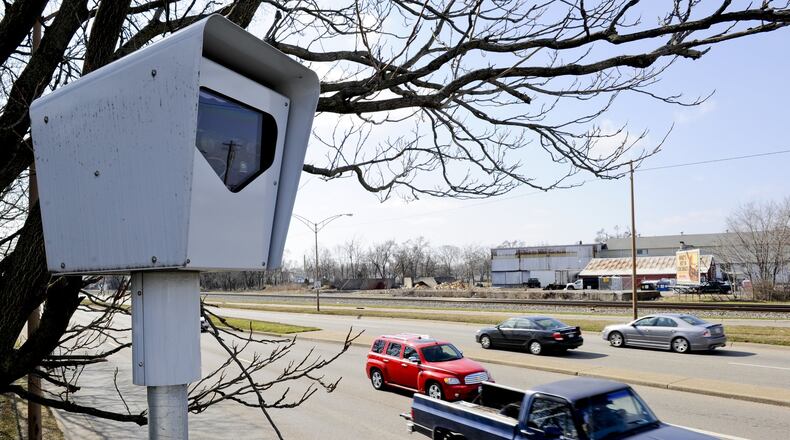“I have great concerns about due process in this case,” Sage said, noting at the heart of due process is the right to have a hearing conducted by a neutral administrator, not one appointed by the police.
“They (drivers) are almost presumed guilty before found guilty.”
New Miami’s attorneys argued Sage should issue a stay in the case until after the Ohio Supreme Court disposed of a similar, pending case from the city of Toledo.
Sage asked questions and listened to more than two hours of arguments from both village attorneys and attorneys for the four motorists who filed a lawsuit against New Miami in July. Extensive motions and arguments submitted from both sides were also considered by the judge.
The village had asked Sage to dismiss the lawsuit, but instead the judge granted the case class-action status, meaning thousands of other motorists who have been cited could join on and seek a legal remedy.
New Miami has collected more than $1 million in revenue from 10,000 drivers since deploying the mobile cameras 15 months ago. Sage did not rule today on whether the village would have to repay the money to those cited.
Sage’s decision comes not long after the decision by a Hamilton County judge who pulled the plug on speed cameras in the village of Elmwood Place. Sage referred to the procedure for automated speed enforcement in both the villages as “almost identical.”
Joshua Engel, attorney for one of the plaintiffs, told the judge, “We are not saying they (cameras) are bad; what we are saying is people have to be given the opportunity to defend themselves.”
The attorney also said administrative hearings permit hearsay statements and don’t permit people to request documents to test those statements, such as proof about the calibration of the speed cameras themselves.
While people had the right to appeal the outcome of an administrative hearing, Engel pointed out they had to make a $315 filing in order to get due process for a $95 ticket.
Most will not pay the money or make the effort, which means the village wins, he said.
“They (the village) are counting on that,” Engel said.
Wilson Weisenfelder Jr., one of two attorneys representing New Miami, argued “what is due process in a criminal matter is not necessarily the same in an administrative hearing.”
Additionally, the rules of civil procedures do not apply in an administrative hearing, Weisenfelder said.
While the camera’s are a money-maker for the village, which gets 60 percent of the amount and the company that operates the equipment the remaining 40 percent, Weisenfelder said the cameras are more efficient in maintaining the village’s speed limit while freeing up officers for other duties.
Sage made it clear that he would revisit his decision if New Miami changed the administrative hearing process.
Attorneys for the village told the Journal-News they would be appealing ruling.
About the Author

